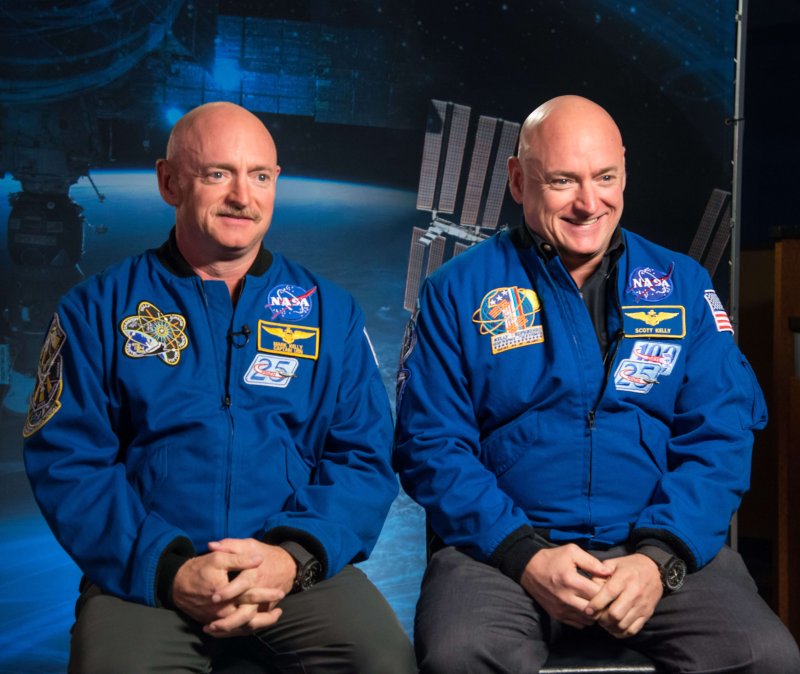Preliminary results are in from NASA’s unprecedented twin study— a detailed probe of the genetic differences between astronaut Scott Kelly, who spent nearly a consecutive year in space, and his identical twin Mark. Measurements taken before, during and after Scott Kelly’s mission reveal changes in gene expression, DNA methylation and other biological markers that are likely to be attributable to his time in orbit.
From the lengths of the twins’ chromosomes to the microbiomes in their guts, “almost everyone is reporting that we see differences”, says Christopher Mason, a geneticist at Weill Cornell Medicine in New York City.
…
Studies of the twins’ telomeres, the caps on the ends of their chromosomes, showed that during spaceflight Scott’s telomeres grew to be longer than his brother’s. “That is exactly the opposite of what we thought,” says Susan Bailey, a radiation biologist at Colorado State University in Fort Collins.
Once Scott returned to the ground, the length of his telomeres returned to his pre-flight levels relatively quickly. The scientists are working to figure out what this means, and are running a separate study of telomere length in ten unrelated astronauts that, when completed in 2018, may shed more light on how spaceflight affects telomeres.
[The study can be found here.]The GLP aggregated and excerpted this blog/article to reflect the diversity of news, opinion, and analysis. Read full, original post: Astronaut twin study hints at stress of space travel































